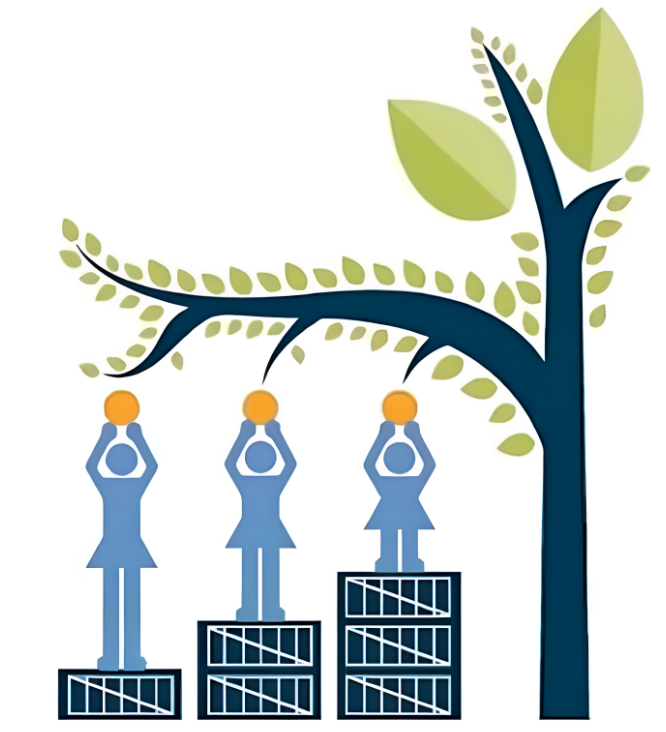Exploring inequity and equity in adult social care
Part of the 'Equity Change Project'
Introduction
In this section we think about current inequities in adult social care and what equity involves and we introduce a number of different models to support practice.
Inequity in adult social care
The Change Project began with a data scope that looked at evidence on oppression, inequity and disadvantage across health and social care, housing and criminal justice. The data scope is not published but further information is available, see Equity in adult care. The impact of inequities, arising from context, on people’s lives was clear, including:
- Differences across the life-course that affect people’s wellbeing and their need for services.
- The effects of socioeconomic disadvantage, discrimination, demographic and cultural factors.
- Differences in the adult social care response.
- Unequal barriers to accessing support.
- Poorly or unfairly targeted services.
- Inequality and discrimination in service responses.
- Abusive service responses.
- Difference in outcomes of challenge to poor service responses.
There is a lack of data about inequity. The data that we have relates to identified protected characteristics in the Equality Act 2010. Gaps include:
- Lack of information about some of the protected characteristics compared with others.
- Lack of information about people with different identities within a protected characteristic.
- Conflation of people from different groups.
- Experiences that are not captured, including because they’re below thresholds for data collection.
- Data collection methods that aren’t innovative enough to reach people or capture their experiences.
It’s clear from the evidence we do have that people with overlapping minoritised identities – for example, older, LGBTQ+ disabled people – suffer increased oppression and inequality.
Reflective question
What evidence do you have of inequity in your local area?
Use this tool below to draw the intersecting system of inequity.
This tool helps you to make inequity in the adult social care visible so you can see how to change it.
Equity in social care
Equity in social care involves:
- Access to services: Equity means that individuals should have equal access to social care services, regardless of factors such as income, race, gender or disability. It focuses on removing barriers and ensuring that services are available to all who need them.
- Fair distribution: Equity in social care involves distributing resources and support based on individual needs, rather than treating everyone the same. It recognises that some individuals may require more assistance or specialised services, and it aims to allocate resources accordingly.
- Inclusive and person-centred care: Equity in social care emphasises the importance of including the perspectives and preferences of individuals in decision-making processes. It recognises that individuals should have a say in the care they receive, and their voices should be valued and respected.
- Addressing disparities: Equity in social care also involves identifying and addressing disparities and inequalities that exist within the system. It requires a commitment to addressing systemic barriers and ensuring that marginalised and at-risk populations receive the necessary support to overcome social and economic disparities.
Overall, equity in social care means striving for fairness, inclusivity, and individualised support to ensure that all individuals, regardless of their circumstances, have equal opportunities to access and benefit from social care services.
Reflective question
How much do you think and talk about equity?
Example: What does equity mean in adult social care?

During the Change Project, we discussed what equity means and looked at some of the inequities that are known in adult social care, including the evidence that people with overlapping identities suffer increased oppression and inequality. We then considered what real equity in adult social care would look like.
Participants told us this would include:
- An acknowledgement that we don't all start from the same place.
- Fair treatment and outcomes.
- Providing what is required to 'level the playing field' (not giving everyone the same, but what is specifically needed to ensure that individuals are 'at the same level').
- Ensuring additional support and adjustments for those who may have difficulty accessing services.
- The right to live in a way that suits me without question.
- Having the same chances as everyone else.